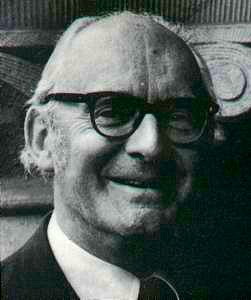
Sometimes when attempting to demolish the arguments of the Christ myth theory historical Jesus scholars point to a popular biography of Jesus, Jesus: An Historian’s Review of the Gospels, by a scholar situated well outside the faculties of theology or biblical studies, the classicist Michael Grant. The reason they point to Michael Grant’s book is to be able to say, “See, even a non-theologian, a secular historian, knows Jesus really existed.” The implication is that the normal methods of everyday historical inquiry (quite apart from anything theologians might bring to bear on the topic) are sufficient to “prove” that the person Jesus is a fact of history.
So this post looks at what Michael Grant himself said about the evidence, his methods and why he believed Jesus to be an historical person.
I wonder how many of these Jesus scholars have taken the time to read Grant’s book since none, as far as I am aware, has ever pointed to Grant’s own argument in that book against the Christ Myth view and his own justification for believing Jesus to have been historical. Or maybe it is because they have read it that they choose to remain quiet about Grant’s arguments.
Who was Michael Grant?
Michael Grant was a classicist specializing in the study of Roman coins who was responsible for over 70 books on historical topics.
Immensely prolific, he wrote and edited more than 70 books of nonfiction and translation, covering topics from Roman coinage and the eruption of Mount Vesuvius to the Gospels. He produced general surveys of ancient Greek, Roman and Israelite history as well as biographies of giants such as Julius Caesar, Herod the Great, Cleopatra, Nero, Jesus, St. Peter and St. Paul. (Wikipedia, accessed 2nd Feb 2013)
His reputation as an historian of ancient history was mixed:
As early as the 1950s, Grant’s publishing success was somewhat controversial within the classicist community. According to The Times:
Grant’s approach to classical history was beginning to divide critics. Numismatists felt that his academic work was beyond reproach, but some academics balked at his attempt to condense a survey of Roman literature into 300 pages, and felt (in the words of one reviewer) that “even the most learned and gifted of historians should observe a speed-limit”. The academics would keep cavilling, but the public kept buying.
(Wikipedia, accessed 2nd Feb 2013)
The work of his that I remember most clearly as an undergraduate was a collection of translated readings of Roman literature. This was supplemented by many other more comprehensive readings.
The “notoriously hard and challenging task”
At the end of Grant’s book on the life of Jesus he asks how we know if anything he has written is truly historical. Continue reading “The Historical Jesus and the Demise of History, 3a: How One Popular Historian Follows Jesus to Scholarly Perdition (Part 1)”
